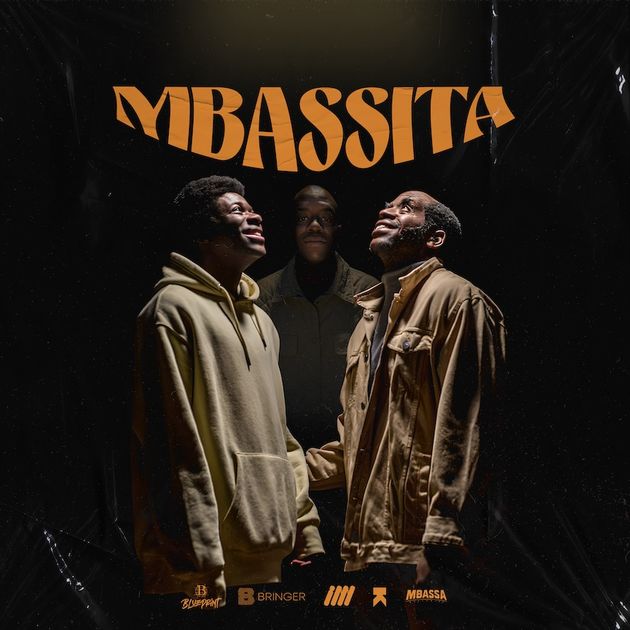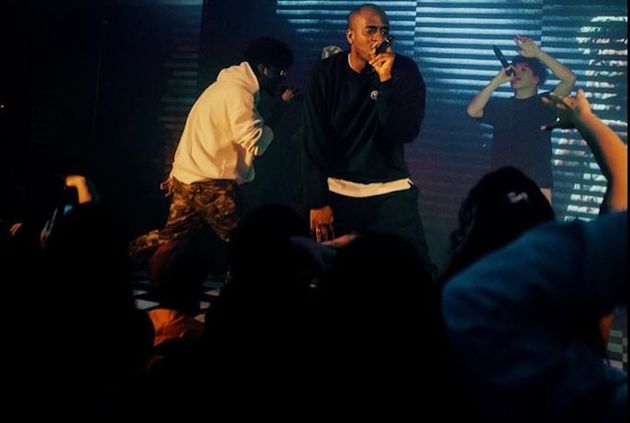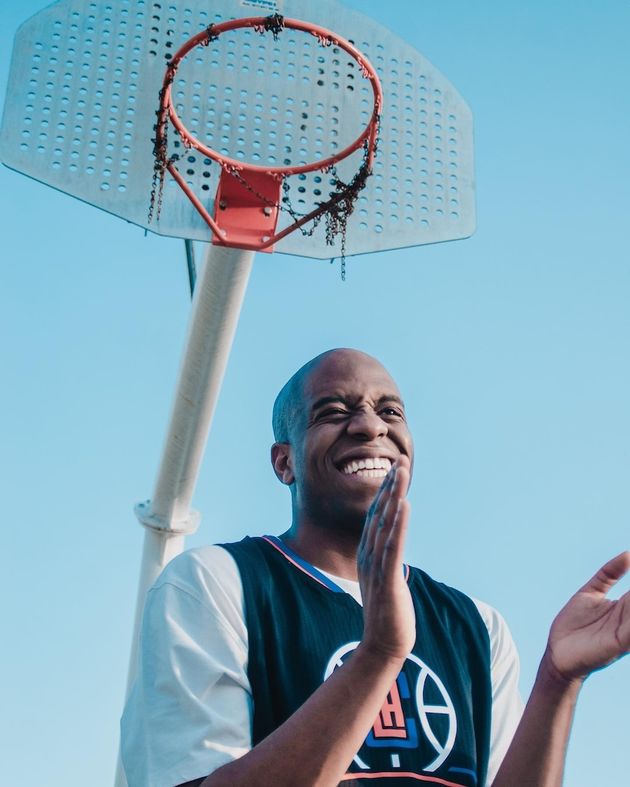Three worlds, three phases and three languages run through Mbassita, the new album by rapper Mbassa, to whom we talked about music, culture, art and faith.
![Mbassa, rapper based in Madrid. / [link]Instagram Mbassa[/link].](https://cms.evangelicalfocus.com/upload/imagenes/65dcdd5a9a364_Mbassa.jpg) Mbassa, rapper based in Madrid. / [link]Instagram Mbassa[/link].
Mbassa, rapper based in Madrid. / [link]Instagram Mbassa[/link].
Welcoming immigration has been one of the most significant social ministries in recent decades in the Spanish evangelical sphere.
Music reflects this reality well, and one example is Iván Mbassa, a rapper based in Madrid who has just released his second studio album, with a self-referential title, Mbassita.
Mbassa presents himself as "a senior with the smile of a beginner" and believes that in his lyrics one can identify not only his own struggles, but also those of his generation. They show the hope that he has found in Jesus Christ.
The rapper talks with Spanish news website Protestante Digital about his faith and his music.
Question. How long have you been rapping?
Answer. I have been a fan of rap music since I was a child, but it was when I was 15 or 16 that I started rapping with some high school friends.
I began trying out free mics at parties and I saw how people told me that my voice had something. That was how I started with my first lyrics, but at that time it was mainly an outlet to express my frustrations.
Then things advanced, and it wasn't until about seven years ago that a door opened.
I went to a Youth With A Mission (YWAM) mission school, where there were many opportunities for me to rap and do evangelism. One of the directors encouraged me to take it seriously.
Since then I have got more involved and understood better how to do it. The [pioneer Spanish] band Praxiz has helped me so much, they are like mentors to me.
Q. Introduce us to Mbassita, what did you want to communicate?
A. This work brings together three of my own worlds. I'm very attached to my adolescence, when I discovered rap and afro-American traditions, and I fell in love with that culture.
In this project, I connect with that passion, when everything fascinated me, but together with the experience of life I have now. The excitement of the past with the present reality: that you are an adult, that maybe you cannot make a living from music. It is as if when you turn 30 everything turns against you.
That is why illusion and disillusionment come together. Therefore, there are three realities: the passion of adolescence, the frustration of the present and the hope for the future.

Q. How do you experience that mix of personal realities and cultures?
A. At home, we were children of African migrants, sub-Saharan Africans, we have the African culture at home. And then there is the reality of secondary school, and your classmates living another life and culture.
As the child of an African migrant, we deal with other things. We see that our peers have functional families, a town to go to on the weekend, etc. We are a third culture: African, Spanish, but we don't feel that way either, and at the same time we like the American culture.
These three influences mark my identity. As a teenager it is a struggle, but as you get older, you realise it is a blessing.
When I started following Jesus, the range opened up even more. I knew Jesus in a Brazilian church, and there another world of cultures and voices opened up to me. It is an immense enrichment. On this album there is a song called Us, which talks about that influence.

Q. Do your songs express part of your spiritual path?
A. Yes. As a teenager, when I was writing, it was easy to connect with rap because it was about venting. As I vented, I found answers to my needs in a very satisfying way. But what I was expressing was mostly frustrations and rejection of God.
After meeting God, at first I tried to write worship songs in rap, but I realised that what worked best for me was to continue to do it as before, as an experience of venting.
Since Jesus is now present in my life, it shows. It is like in Psalm 13, which starts complaining and ends up praising God. That is my writing process.
Now I understand that Jesus is present when I write, so I do not have to be afraid of what I am going to say, because he is with me.
I talk to Christian rappers who find it hard to lament, and when they do, they have a lot of filters. My experience is different: writing without filters, where something pure but guided by the Holy Spirit is born.
Some people say to me: "I do not hear you mention Jesus, but I can feel it". It is not that I am or am not looking for that spiritual element to appear, but it is there and it is evident.
Q. What do you think about the popularity of urban music?
A. These are interesting times for those of us who have been working for a long time and want to do it professionally, because now there is an industry.
When I was young there was no industry, what mattered was respect. Not even to be respected as a rapper, but as a person. Now there is an industry and there is that pressure. It's been hard for me to understand that.
Rap is part of pop culture and urban music, but I can't write like the rest, because I see that I don't fit in. I finally surrendered to the concept of urban music. I do rap, also fusion, but my aim is to write as purely as possible.
And I hope to find people who connect with what I do, people who are looking for something authentic. But it's a struggle! I feel a bit lost.
Q. In your songs you talk about the passing of time, about age... But you also look for contact with the younger generation.
A. I am increasingly aware that I need them. This project has been made possible thanks to the young people who walk with me. Thanks to the way they see me, the way they believe in me, they have given me my enthusiasm back. For me it is essential.
I am understanding my responsibility to be like an older brother. I have realised that people grow older, maybe I am the older brother who raps, so they can see that there is a future.
Q. What are your plans for your career?
A. Our whole plan ends with the launch of this album. Now I depend on providence and the opportunities that may arise.
It is a project that has been cooked up on a completely volunteer basis. We all have put what we have into it. It has taken a long time to come out, there have been complications.
So we have come this far, and we would like to spread the word to make it better known and see what opportunities may arise.
Q. Do you think there are enough opportunities for artists like you in the evangelical context?
A. I am trying to understand how the evangelical world works. It is all very underground. It seems to me that the big platforms are not taking advantage of the things that are happening, which deserve more promotion.
I think we are making the mistake of sticking to what has always worked, of playing it safe. We are in a time when things are moving fast, with a new restless generation. That is why we need to take risks and make disruptive proposals.

I think that part of the answer lies in the artists. It has been hard for me to identify myself as an artist, but once you understand what is happening and you find new works that transmit goodness, justice, beauty... It is a pity to miss it.
Maybe it is a problem in the evangelical world, because historically we used to set the course for art. Now, as we have our own industry, perhaps we have grown comfortable. As Christians, we could take a little more risk with art.
Q. What would you like people to find in this new album?
A. I encourage people to listen to the album and dig in, and hopefully God will speak to them through this project.
[analysis]
[title]One more year[/title]
[photo][/photo]
[text]At Evangelical Focus, we have a sustainability challenge ahead. We invite you to join those across Europe and beyond who are committed with our mission. Together, we will ensure the continuity of Evangelical Focus and Protestante Digital (Spanish) in 2024.
Learn all about our #OneMoreYearEF campaign here (English).
[/text][/analysis]

Las opiniones vertidas por nuestros colaboradores se realizan a nivel personal, pudiendo coincidir o no con la postura de la dirección de Protestante Digital.
Si quieres comentar o